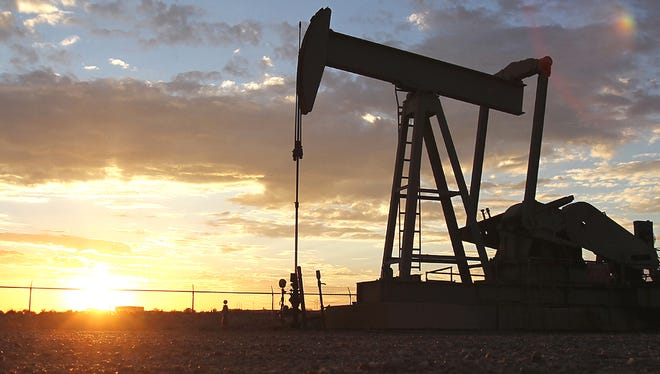NM oil and gas industry on edge

ALBUQUERQUE – New Mexico's oil and gas industry is facing significant regulatory reforms under the state's new Democratic-dominated government, and it's got producers on edge.
That includes potential legislative amendments to New Mexico's Oil and Gas Act to let the state Oil Conservation Division directly impose penalties and fines on operators who violate environmental laws, plus statutory changes in leasing policies to allow royalty rates for production on state lands to rise from 20 percent to 25 percent. The state's first rules and regulations to control methane emissions in oil and gas operations are also on the horizon.
"Folks down here are worried about the direction things could take," said Raye Miller, president of Regeneration Energy Corp. in Artesia. "...I hope officials are cognizant of how much our industry contributes to the state economy. With punitive policies, capital will flow across state lines into Texas."
For the Energy, Minerals and Natural Resources Department, giving the Oil Conservation Division authority to impose sanctions is critical to enforce regulations. Under current statutes, the OCD must sue violators in court through the Attorney General's Office, something officials say impedes effective oversight.
"We need tools to enforce the law," said department secretary-designate Sarah Cottrell Propst. "It's a glaring, missing piece our agency needs to do its job."
But industry leaders say the judicial process ensures fairness through independent assessment of alleged violations, rather than state inspectors acting as judge and jury.
"The benefit is we get an impartial decision maker and a clean record based on evidence developed by both sides," said New Mexico Oil and Gas Association Executive Director Ryan Flynn. "All we want is a fair shake."
In addition, the proposed reform could impose criminal sanctions on operators who knowingly violate the Oil and Gas Act.
"That seems like an effort not to increase accountability, but to open opportunities to beat up the industry," Flynn said.
Efforts to raise royalty rates is also a major concern. Land Commissioner Stephanie Garcia Richard said the state's leasing statute hasn't been updated since the 1970s, and the proposed increase would match royalty rates with Texas.
But Flynn called it "unnecessary and unwise," since it could lower investment and production in New Mexico just when the industry is generating record state revenue.
Unlike the proposed statutory reforms, which the Legislature must approve, EMNRD and the Land Office will seek new administrative controls on methane emissions through the state Oil Conservation Commission and the Environment Department. Gov. Michelle Lujan Grisham and Garcia Richard made methane regulation a critical part of their campaign promises.
Flynn declined to comment on that issue until the proposed rules are available. But in general, industry leaders want to cooperate with state officials, he said.
"The governor and the secretary designate have said they recognize the oil and gas industry as an important stakeholder and they want to bring people together," Flynn said. "We're encouraged by that approach and we want to work with them."